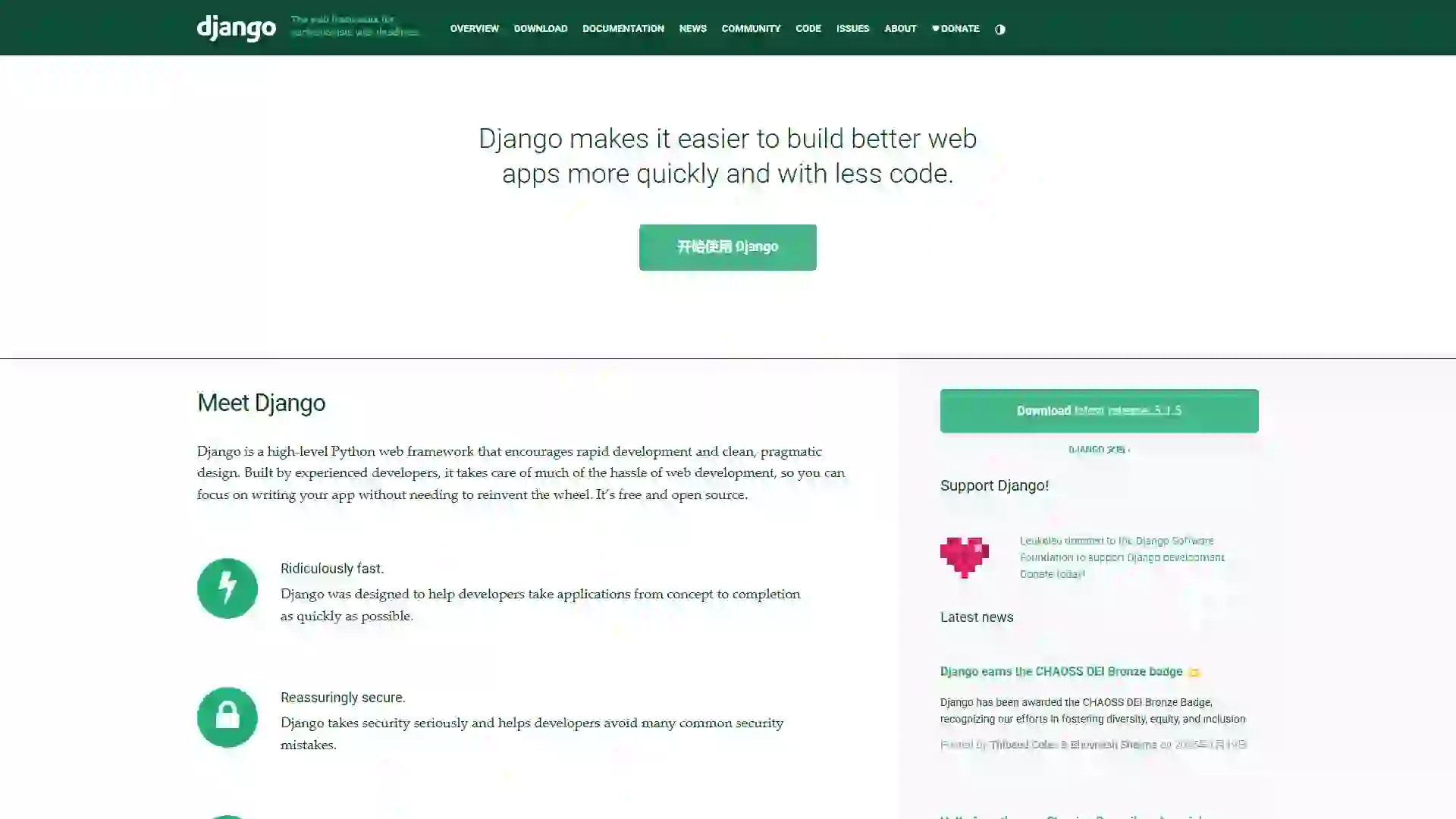- Home
- Development
- Django
Django
📝 Summary
Django is a powerful, full-stack web development framework built on Python. It offers a comprehensive suite of tools, including an intuitive admin interface, robust security features, and extensive internationalization support. These capabilities make Django an ideal choice for rapidly developing sophisticated web applications with high reliability and scalability.
✨ Features
- Full-Stack Framework: Django provides end-to-end functionality, from database operations to front-end template rendering. This comprehensive toolset enables developers to build fully functional web applications with ease and speed.
- Built-in Admin Interface: Django comes equipped with a powerful admin interface that simplifies data management. This feature eliminates the need for additional development, allowing developers to focus on core application logic.
- Robust Security Features: Django incorporates multiple built-in security mechanisms, such as CSRF protection and SQL injection prevention. These features ensure that web applications built with Django are secure by default.
- Strong Internationalization Support: Django offers seamless internationalization capabilities, making it effortless for developers to create multilingual applications that cater to diverse audiences.
🎯 Use Cases
- Rapid Development of Complex Web Applications: Django's full-stack capabilities and built-in tools make it highly suitable for quickly developing complex web applications with minimal setup time.
- Applications Requiring a Powerful Admin Interface: For projects that need a robust admin interface, Django's built-in admin functionality significantly reduces development effort and accelerates time-to-market.
- Multilingual Applications: Django's internationalization support makes it an excellent choice for developing web applications that require multilingual capabilities, ensuring global accessibility.
⚠️ Drawbacks
- Steep Learning Curve: Django's rich feature set and complex architecture can be challenging for beginners. However, with dedication and practice, developers can quickly master its capabilities.
- Performance Considerations: While Django excels in many areas, it may not match the performance of some lightweight frameworks for high-concurrency applications. This is a trade-off for its extensive feature set and ease of development.
❓ FAQ
Q1: What are the main features and benefits of Django?
A1: Django is a full-stack web development framework that offers an intuitive admin interface, robust security features, and extensive internationalization support. Its primary benefits include rapid development, reduced development effort, and high reliability. It is ideal for building complex web applications and multilingual projects.
Q2: How does Django compare to other web development frameworks?
A2: Django stands out for its comprehensive feature set and built-in tools, making it highly efficient for rapid development. While it may have a steeper learning curve compared to some lightweight frameworks, its robustness and security features make it a preferred choice for complex projects. It is particularly well-suited for developers who prioritize ease of development and reliability over raw performance.
Q3: Is Django suitable for beginners or professionals?
A3: Django is suitable for both beginners and professionals. While it has a steeper learning curve for newcomers, its extensive documentation and community support make it accessible. For professionals, Django's rich feature set and scalability make it a powerful tool for building sophisticated web applications.
